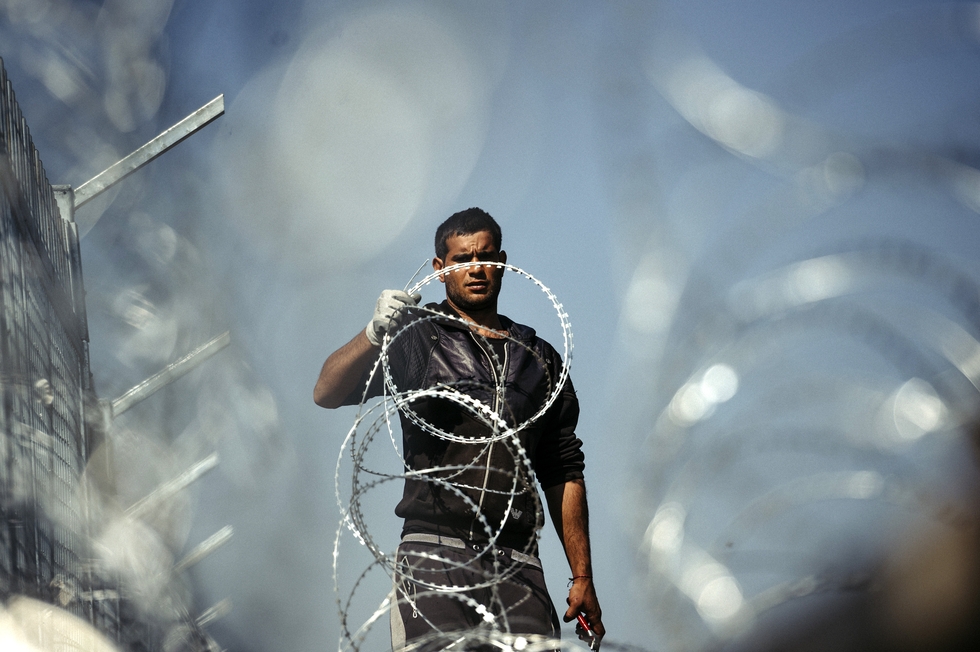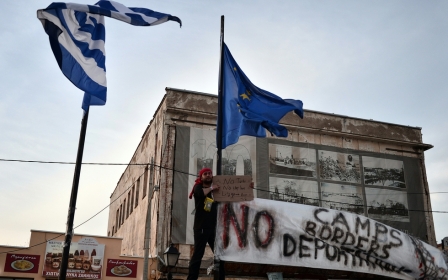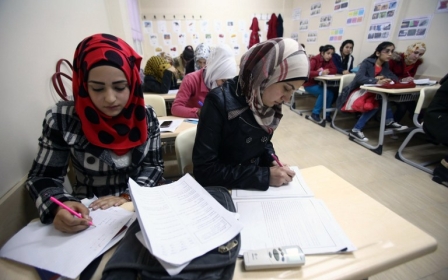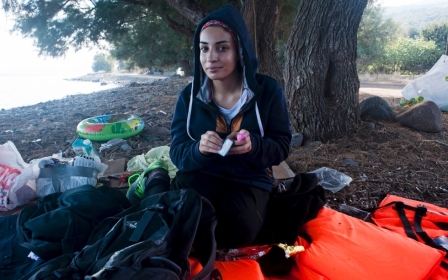A time bomb ticking: What happens if the EU-Turkey deal falls apart?

Will the rapid though silent escalation of political tensions between the European Union and Turkey, which has been taking a dangerous turn over the last few weeks, push Ankara to drop a “human bomb” on Europe by opening its borders for refugees to enter Greece and other EU countries?
The question is anything but trivial - it is rather a source of deep concern among the many non-governmental humanitarian organisations and the United Nations, who are making relentless efforts to fill the huge relief gaps caused by the apparent indifference of those powers who greatly contributed to creating this unprecedented humanitarian crisis.
These powers are mainly the United States, the United Kingdom and France who, supported by other Western countries and rich Arab nations, led military coalitions that invaded Afghanistan and Iraq and who, along with Russia, have been providing weapons to most of the fighting parties in Syria.
Ironically, these four powers are permanent members of the United Nations Security Council.
The above-posed question is more than mere alarmist speculation. In fact, Turkish President Recep Tayyib Erdogan has recently made veiled, though specific threats to the EU, by warning against the consequences of Europe continuing to fail the two key commitments it made in exchange of the EU-Turkey refugee agreement - also known as “the shame deal”– which the two parties sealed on 22 March this year.
The deal is about Turkey taking back the hundreds of thousands of asylum seekers who fled to its territories, mostly from Syria, Iraq and Afghanistan, and crossed from there to EU bordering countries like Greece. Once “re-taken”, the EU said it would “select” an undetermined number of asylum seekers, mainly Syrians.
In exchange, the European Union promised to pay Ankara three billion euros a year, starting in November 2015, to share only a relatively small part of the big financial burden that Turkey shoulders by providing shelter, food and health care to the repatriated asylum seekers. Turkey currently hosts three million refugees.
The EU also promised to allow Turkish citizens to access its member countries without entry visa, also as part of the “shame deal”.
The tensions between the EU and Turkey were made clearly visible at the World Humanitarian Summit (WHS), which Turkey hosted in Istanbul on 23-24 May, covering a big portion of its cost.
The summit was meant to highlight the fact that human suffering has now reached unprecedented, staggering levels as stated to IPS news agency by Stephen O’ Brien, the UN under-secretary-general for humanitarian affairs (OCHA), who called on world leaders to mobilise the much-needed resources to alleviate this human drama.
For this, the UN submitted to the summit a set of shocking facts: the world is witnessing the highest level of humanitarian needs since World War II, and experiencing a human catastrophe “on a titanic scale” as stated by summit spokesperson Herve Verhoosel: 125 million humans in dire need of assistance, over 60 million people forcibly displaced, and 218 million people affected by disasters each year for the past two decades.
The UN also quantified the urgently needed resources: more than 20 billion dollars needed to aid the 37 countries currently affected by disasters and conflicts.
It also stressed that unless immediate action is taken, 62 per cent of the global population – more than 4.5 billion human beings - could be living in what is classified as fragile situations by 2030.
In spite of these staggering facts, none of the leaders of the most industrialised countries – the so-called Group of Seven richest nations (G7) - nor any of the five permanent members of the UN Security Council, attended the summit.
The sole exception was German Chancellor Angela Merkel, who had reportedly gone to Istanbul to meet Erdogan over the growing political tensions rather to participate in the summit.
This absence of the top decision-makers of the richest countries has been widely criticised, starting with the UN Secretary General Ban Ki-moon who on 24 May publicly decried it. Also Turkish President Erdogan expressed deep disappointment at such a political boycott by world leaders.
Moreover, in a press conference at the closure of the summit on 24 May, Erdogan revealed that Europe had not met its promises as it had not provided the committed financial resources, nor kept its commitment to let Turkish citizens enter the EU without visa as from June this year.
He then expressed strong indignation, fury even, over the set of 72 new conditions the EU has suddenly imposed on Ankara in exchange of suppressing the entry visa requisite for Turkish citizens. These conditions imply, among others, that Ankara changes its current anti-terrorist laws.
Nightmare scenario
All this moved Erdogan to warn that if Europe does not honour its part of the refugee deal, the Turkish Parliament will not ratify it.
This simply means that Turkey would not only stop allowing refugees to be forcibly returned to its territories, but that it would also permit more and more of them to cross its borders to the EU countries.
In the meantime, more and more organisations have been accusing Europe of sealing an immoral, unethical and, above all, illegal refugee deal with Turkey. But meanwhile Europe has been turning rapidly, dangerously towards far right parties and movements that are feeding hate, xenophobia and islamophobia.
Also, tens of thousands of refugees and migrants are still trying to reach Europe, many of them drowning at sea, prey to inhumane practices and manipulation by smugglers.
Humanitarian assistance organisations such as Doctors Without Borders, Save the Children, the UN Children Fund, UN refugee agency, among many others, have been warning that a growing number of unaccompanied children - estimated at one in three refugees and migrants, are crossing Mediterranean waters and European frontiers.
Only two days ahead of the World Refugee Day, marked on 20 June, the UN secretary general visited the Greek island of Lesbos, which has become migrants’ entry point to Europe. There he called on “the countries in the region” to respond with “a humane and human rights-based approach, instead of border closures, barriers and bigotry”.
“Today, I met refugees from some of the world’s most troubled places. They have lived through a nightmare. And that nightmare is not over,” Ban told non-governmental organisations, volunteers and media.
The “human bomb” is ticking at Europe’s doors amidst the inexplicable passivity of its leaders.
- Baher Kamal is an Egyptian-born, Spanish-national, journalist. You can follow him on Twitter @Baher_Kamal. This article is originally published by the Inter Press Service.
The views expressed in this article belong to the author and do not necessarily reflect the editorial policy of Middle East Eye.
Photo: A worker attaches barbed wire to a border fence to prevent illegal crossings by migrants at the Bulgarian-Turkish border near the Bulgarian village of Shtit, on 18 March, 2016 (AFP).
New MEE newsletter: Jerusalem Dispatch
Sign up to get the latest insights and analysis on Israel-Palestine, alongside Turkey Unpacked and other MEE newsletters
Middle East Eye delivers independent and unrivalled coverage and analysis of the Middle East, North Africa and beyond. To learn more about republishing this content and the associated fees, please fill out this form. More about MEE can be found here.





